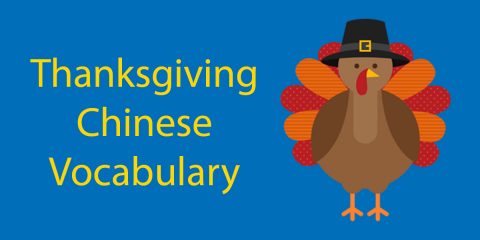HSK Preparation Tips You Need To Follow To Succeed
Preparing for the HSK (Hànyǔ Shuǐpíng Kǎoshì) can feel like a big challenge — but with the right strategy, it’s absolutely achievable.
💪 At LTL, 95% of our students pass the HSK exam, and we’ve helped thousands of learners hit their goals, from HSK 1 all the way to HSK 6.
In this guide, we’ll share 7 proven HSK preparation tips to help you study smarter, stay on track, and walk into test day with confidence. Whether you’re just getting started or pushing for advanced fluency, these tips will make your HSK journey smoother and more effective.
HSK Prep Tip #1 – Vocabulary
HSK Prep Tip #2 – Exercises
HSK Prep Tip #3 – Grammar
HSK Prep Tip #4 – Make a Plan
HSK Prep Tip #5 – Practice in Real Time
HSK Prep Tip #6 – Use Apps
HSK Prep Tip #7 – Practice with a Dedicated Teacher
✅ HSK Prep Tip #1 – Build Your Vocabulary Strategically
Vocabulary is essential to any language exam so it is arguably the most important thing to study and understand.
As there is no English in the test, understanding the vocabulary means understanding the instructions, questions and answers.
The amount of Hanzi you have to learn varies according to the level you choose.
| Level | Words To Learn |
|---|---|
| HSK 1 | 150 words |
| HSK 2 | 300 words |
| HSK 3 | 600 words |
| HSK 4 | 1,200 words |
| HSK 5 | 2,500 words |
| HSK 6-9 | 5,000+ words |
There are several lists of all the vocabulary needed to know for your HSK available online and at LTL.
These lists vary with/without the pinyin or with/without the English translations. You can also buy study books made for the HSK exam eg. “HSK 考试大纲” (kǎoshì dàgāng) for the vocabulary, which exists for each level.
TIP💡Focus on learning vocabulary in context, not just as flashcards. Try grouping words by theme (e.g., travel, food, work) and using them in sentences. Apps like Pleco and Anki can help you review smarter, not harder.

How to Pass HSK 6 📚 Ten Tips to Win at the HSK in 2024
Our students have a 95% pass rate when it comes to HSK Exams so you’d think we know best! One of our successful HSK 6 students Kathryn, reveals the secrets.
✍️ HSK Prep Tip #2 – Do Targeted Exercises
When preparing for your exam with your teacher, it is advised to focus on the exercises that use the vocabulary from the list.
It’s important to practice HSK-style questions, not just general Chinese. Use mock exams and practice books that mirror the structure and timing of the real test.
- Listening? Try audio practice with transcripts.
- Reading? Do timed comprehension drills.
- Writing? Copy sample writing prompts and learn key connectors and grammar structures.
The more familiar you are with the test format, the more confident you’ll feel on exam day.
If you don’t have a teacher to practice with ask a Chinese friend to help you correct your practiced exercises.
There are also multiple websites and apps that can connect you with a Chinese friend/pen pal from around the world.

7 Reasons Why You Should Learn Chinese in China in 2025
Reasons You Never Expected // Learn Why YOU Should Come to China Learning a language is not just about vocabulary and grammar—it’s about culture, context, and immersion. Chinese, one of the most widely spoken languages in the world, has gained…
🧱 HSK Prep Tip #3 – Master Key Grammar Patterns
Grammar plays a big role, especially in the HSK 3–6 levels. Make sure you understand how to use:
- 了 (le), 过 (guò), 着 (zhe)
- 把 / 被 constructions
- Topic-comment sentences
- Time and frequency expressions
- Linking words like 虽然…但是, 不但…而且, etc.
Review grammar not in isolation, but through real examples, HSK reading passages, and by writing your own.
Grammar is important when learning a language as it implies fluency and proficiency when speaking/writing the language.
Learning as much grammar as possible will help you through your exam as it helps you understand the questions posed.
👉 Check out the LTL Chinese Grammar Bank for grammar explanations with examples and audio!
📅 HSK Prep Tip #4 – Make a Study Plan
A solid HSK study plan is key to making consistent progress. Ask yourself:
- When is your target exam date?
- How much time can you realistically study each day or week?
- What are your weakest areas?
Break your prep into weekly goals (e.g., “Learn 100 new words,” “Do 2 full listening practices,” “Revise 5 grammar points”). Small, consistent effort > last-minute cramming.
Most people start studying for their HSK about a month or so in advance of the exam date and make a study schedule.
The HSK exam is divided into 3 main parts: listening, reading and writing.
So it is advised to divide your time accordingly to the weighting of each part e.g. If listening is worth 20% of your exam allocate 20% of your time to listening practice.
🕒 HSK Prep Tip #5 – Practice in Real Time
The real HSK test is timed, and time pressure can trip up even fluent speakers. That’s why you should:
- Simulate full tests under timed conditions
- Use a stopwatch for reading/listening sections
- Practice writing essays in 30 minutes or less
Real-time practice builds stamina, confidence, and helps you identify where you’re losing precious minutes.
HSK Preparation Tip #6 – Use Apps
There are some fantastic apps tailored to HSK learners. A few top picks:
- Du Chinese – graded reading for all levels
- Pleco – top-tier dictionary with flashcards and example sentences
- HSK Online – mock tests, practice questions, and progress tracking
- HelloChinese – great for beginners working up to HSK 3
Apps make it easy to review on the go and can help you turn spare minutes into productive study time.
We’ve written a shed load of app reviews with thanks to our Marketing team.
One I would recommend is HSK Online, we wrote a review and made a video about it. Check them out. It’s a great tool for passing the HSK.
👨🏫 HSK Preparation Tip #7 – Practice with a Dedicated Teacher
A teacher or tutor who knows the HSK format can be a game-changer. They can:
- Spot and correct grammar mistakes
- Help with writing structure and tone
- Simulate speaking tests
- Give personalized feedback
Many students find they progress twice as fast when guided by an experienced HSK teacher.
You can get yourself one at one of our schools or even Online so you don’t have to leave your own home with our dedicated HSK online courses.
How is the HSK Exam Marked?
HSK 1 & 2 has 2 sections while HSK 3 – 9 has 3.
Each section of the exam is worth a total of 100 marks. Questions are worth a different amount of marks throughout the levels of the HSK exams.
For example in HSK 1 listening there are 20 questions worth 100 marks hence each questions is worth 5 marks.
Another example of this is when sections of the exam are divided into further parts such as the HSK writing section.
Part 1 of the writing has 5 questions worth a total of 60 marks (12 marks per question) while part 2 also has 5 questions worth 40 marks (8 marks per question).
You will be told about the weighting of the marks before you start them.
The newer HSK exams are now set out in a way that you don’t need to pass every part of the exam.
Just as long as you pass the overall exam (even if you fail sections) you will pass. This gives you an advantage.
The Writing Sections
A sound understanding of the writing section is required to give you the greatest chance in passing the HSK exam as it is worth 33% of the exam but also each writing section has a different lay out.
HSK 1 and 2 have no writing section.
HSK 3, 4 & 5’s part 1 section of the writing are somewhat similar. The most important thing to remember when undertaking the writing section in the HSK exam is that any question left blank will be awarded zero marks hence its ideal to fill every question.
Even if you have incorrect sentence structure or wrong characters you may be eligible for a lower band of marks instead of zero.
However, if sentence order is correct but you use too many/not enough words or a few incorrect characters you may be eligible for the middle band of marks.
The high mark band is available to students whom display strong grammar, correct characters and provide an appropriate response to the question.

- HSK 3 – part 2 of the writing section is simply writing characters. Left blank and it will be worth zero marks while on the other hand if the Character is incorrect but similar you may still get the middle bank of marks.
- HSK 4 – part 2 of the writing section is making sentences according to pictures. Similarly to the part 1 marking scheme of bands a higher proficiency of one’s language skills will allow them to gain higher marks.
- HSK 5 – part 2 is to write two pieces of creative writing around 80 characters long. For the first piece you are given 5 words to work with and incorporate into your response. As for the second piece you are given a picture and you have to write a story about it. Remember to be eligible for the higher bands you HAVE to use the source material and not just discuss the picture but to actually tell a story through the picture.
- HSK 6 – only has 1 part for their writing section and it is 1 question worth 100 marks. You will be given a long article to read and after 10 minutes it will be taken away. After that you will need to write a 400 character summary of the story.
HSK Exam Timings
Here is a breakdown for each HSK Exam, the length of the exam and how they are broken down per section.
| HSK Level | Listening | Reading | Writing | Extra Listening Time | Total Time |
|---|---|---|---|---|---|
| HSK 1 | 20 Questions / 15 minutes | 20 Questions / 15 minutes | N/A | 3 minutes | 35 minutes |
| HSK 2 | 35 Questions / 25 minutes | 25 Questions / 25 minutes | N/A | 3 minutes | 50 minutes |
| HSK 3 | 40 Questions / 35 minutes | 30 Questions / 30 minutes | 10 questions / 15 minutes | 5 minutes | 1 hour 25 minutes |
| HSK 4 | 45 Questions / 30 minutes | 40 Questions / 40 minutes | 15 questions / 25 minutes | 5 minutes | 1 hour 40 minutes |
| HSK 5 | 45 Questions / 30 minutes | 45 Questions / 45 minutes | 10 Questions/ 40 minutes | 5 minutes | 2 hours |
| HSK 6 | 50 Questions / 35 minutes | 50 Questions / 50 minutes | 1 Question/ 45 minutes | 5 minutes | 2 hours 15 minutes |
Once the listening part has finished in your exam you use your extra time to look over your answers as once you have finished them you can not go back and repeat them.
The set times are important as you can not finish a part early.
However written exams vary due to the standards of the teachers/instructors of the exam.
The HSK guidelines extensively state that you can only do a certain part once but you may have a more lenient teacher/instructor whom may lax the rules to a varying degree.
Additional ways to increase success on your HSK is additional practise outside the scope of the HSK syllabus and using Chinese Social Media, watching cartoons in Chinese or even exposing yourself to Chinese culture by engaging with Chinese literature and the way of thinking.

14 Chinese TV Shows for Practicing Your Chinese
The Very Best Chinese TV Shows to Learn Chinese When it comes to learning Chinese, Chinese TV shows is a huge resource. How many times have you complained that you can read or write Chinese okay (which is no small…
For more information about the HSK exam, prices and dates visit our HSK Exam page.
HSK Preparation // FAQs
What is the best way to prepare for the HSK exam?
The best way to prepare for the HSK is to combine vocabulary review, grammar practice, mock exams, and real-time test simulations. Using apps and studying with a teacher can boost your results.
Are there any apps that help with HSK preparation?
Yes! Top HSK apps include HSK Online, Pleco, HelloChinese, and Du Chinese, which offer flashcards, graded readings, and practice tests.
Do I need a teacher to pass the HSK exam?
While self-study is possible, a teacher can provide structure, spot mistakes, and simulate real exam conditions—especially helpful for higher levels like HSK 4–6.
Which HSK Exams include Pinyin?
Only HSK Exams 1 and 2 include Pinyin, the rest include only Chinese characters.
Do HSK Exams vary in length?
Yes, the harder the HSK, the longer the exam.
HSK 1 runs for 35 minutes, whereas the HSK 6 runs for 2 hours and 15 minutes.
What’s included in the HSK exam format?
The HSK includes listening, reading, and writing sections. HSK 1–2 are multiple-choice only, while HSK 3 and above introduce more complex tasks including written responses and, at HSKK levels, spoken Chinese.


 Hi, my name is Mojca! I am from Slovenia and I work as a student advisor at our Shanghai school.
Hi, my name is Mojca! I am from Slovenia and I work as a student advisor at our Shanghai school.





![Language Reactor ⭐️ Your Next Favourite Learning Tool [2024 Update] Thumbnail](https://ltl-school.com/wp-content/sites/16/Language-Reactor-for-Netflix-480x246.png)